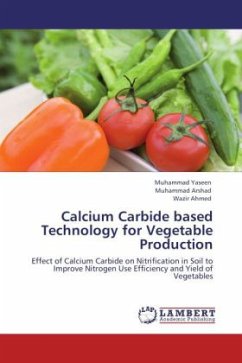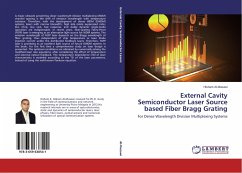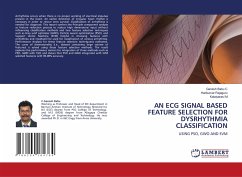
Calcium Carbide based Technology for Vegetable Production
Effect of Calcium Carbide on Nitrification in Soil to Improve Nitrogen Use Efficiency and Yield of Vegetables
Versandkostenfrei!
Versandfertig in 6-10 Tagen
39,99 €
inkl. MwSt.

PAYBACK Punkte
20 °P sammeln!
Calcium carbide releases acetylene gas upon its reaction with water that is further converted to ethylene in soil due to microbial reduction. Acetylene inhibits the activity of ammonia-oxidizing enzymes involved in the nitrification process, thus resulting in the inhibition of nitrification and denitrification processes and increase in the nitrogen fertilizer use efficiency. A series of studies were conducted with collaboration of Higher Education Commission (HEC), Pakistan during 2008-2011. The outcomes of these studies demonstrated the improvement in growth and yield of vegetable crops throu...
Calcium carbide releases acetylene gas upon its reaction with water that is further converted to ethylene in soil due to microbial reduction. Acetylene inhibits the activity of ammonia-oxidizing enzymes involved in the nitrification process, thus resulting in the inhibition of nitrification and denitrification processes and increase in the nitrogen fertilizer use efficiency. A series of studies were conducted with collaboration of Higher Education Commission (HEC), Pakistan during 2008-2011. The outcomes of these studies demonstrated the improvement in growth and yield of vegetable crops through bi-facet action of calcium carbide i.e. as a source of plant hormone, Ethylene as well as nitrification inhibitor, Acetylene. Any formulation of Calcium carbide which leads to slow and gradual release of ethylene and acetylene gases in soil could be useful in improving the nutrient use efficiency as well as growth and yields of vegetables.












